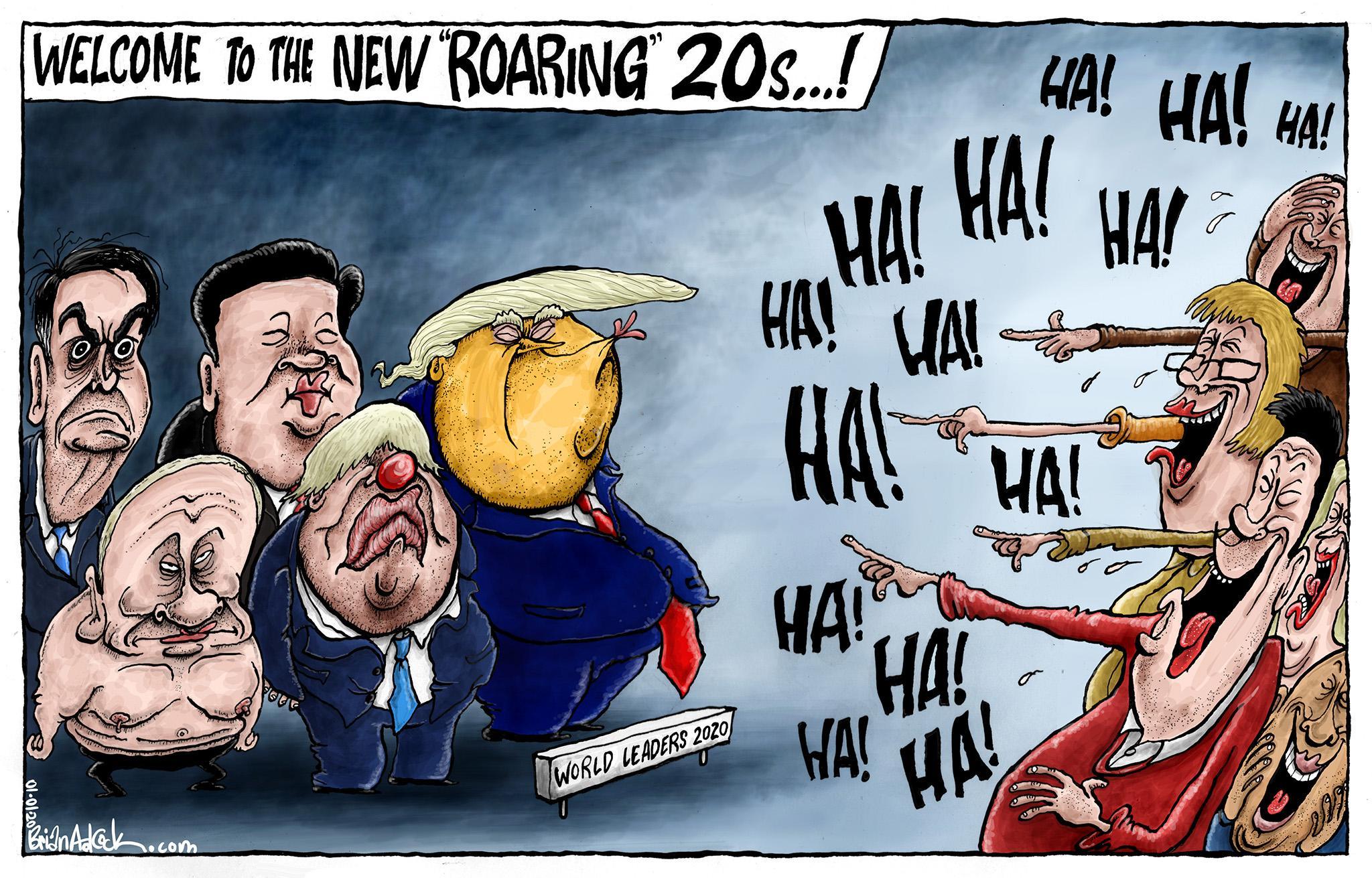There are plenty of problems to deal with in 2020 – but also hope that things can change
Populist nationalism, the climate emergency and trade wars are not going away quickly, but there are signs the tide could be turning

Turn of a year; turn of a decade (colloquially at least); and – perhaps – a turning of the tide?
At first glance, the strange death of liberal democracy and the rise of populist nationalistic movements is a trend that shows little sign of reversing. The arrival of the first Conservative administration with a substantial majority in 30 years – absurdly dubbed “the people’s government” – would seem to confirm it. There are authoritarians increasingly given to repressing human rights ensconced everywhere from Brazil, Italy and India to Russia, Turkey, China and the Philippines – often with uncomfortable levels of public enthusiasm for their exclusivist policies.
Still, the “facts on the ground”, as they say in military circles, may make some impact. To take the overriding challenge facing humanity – the human-made climate crisis – the facts literally are there. Extreme weather events are more frequent and more devastating. Today, eastern Australia is burning, and the sheer scale of the disaster means mitigation is simply impossible. From the firestorms in Arctic Russia covering an area the size of the European Union, to the floods across England and drought across southern Africa, the threat to human life from global warming is growing more apparent by the day.
Groups like Extinction Rebellion and the campaigning of Greta Thunberg have succeeded in raising awareness and intensifying political pressure. More governments and municipalities are setting targets for carbon neutrality and reducing air pollution. People across the west are being persuaded of the benefits of cutting out plastic and meat and are now driven to recycle more and more. Companies are showing signs of greater corporate responsibility – as with the switch to electric vehicles. However, there is no argument more eloquent than the images of people and animals alike, suffering and helpless from the damage of fire and flood.
The year may also see the end of Trumpism – which has spawned and encouraged so many copycat mini-me “strong” men around the world. As a real estate speculator and TV reality star, Donald Trump knows well the importance of image and making your opponents believe you are bigger, tougher and more successful than you really are. So it is with his political style. Yet behind the bombast and the boastful tweeting lurks a personality that is less popular than the one that narrowly won in 2016 (and lost the popular vote). In many respects it is the Democrats’ election to lose. Perhaps they’d be well advised to spend more of 2016 winning the political arguments in the country than on the legalistic process of impeachment – which has zero chance of unseating President Trump.
Elsewhere, the world may also come to reflect on the effects of the slow and so far patchy retreat from globalisation. The trade wars that have escalated between the US and China, and elsewhere, have affected virtually everyone on the planet, and negatively. It may be too much to hope that a relaxation of trade tensions in 2020 will restore healthy economic growth, and, incidentally, improve the financial stability of transnational companies and banks; but recent developments suggest the economic superpowers may be drawing back from the brink.
Which leaves us for the fifth successive year with the uniquely British phenomenon known as Brexit. The one prediction for 2020 that may be safely offered us that Brexit will not get done by this time next year. The withdrawal bill will certainly become law by the end of January. The UK will formally, legally, cease to be full member state, after some 47 years of unprecedented social, political and economic benefits to Britain. Beyond that? A year of transitional arrangements, when no practical changes will give the false impression, and false hope, that this great national trauma is over. Far from it. There is only a vanishingly small possibility that the new trade and security agreement will be complete by 31 December 2020, let alone ratified by around 30 supranational, national and regional assemblies across the EU. With the possibility of a no-deal Brexit still on the table, indeed soon enshrined in law, the scares and panic buying seen before the 2019 deadlines in March, June and October will no doubt be repeated.
Even if, through some diplomatic miracle, the new UK-EU partnership treaty was to be in force by 31 December, it would still mean lower investment and job losses compared to if the UK had stayed in the EU as a full member. Moreover, there us even less chance of any compensatory trade treaties being concluded with the US (Trump or not), China, Japan or anywhere else.
The true economic pain of Brexit is already being felt, and will grow more acute in 2020, and after, with many wondering when exactly Britain’s potential will be unleashed.
Trump; Brexit; Hong Kong; the climate emergency; wars in the Middle East; terror; refugees and the abuse of digital corporate power: the stories that dominated headlines in the last decade will still be there in 2020. Yet there is at least the hope that some of the false promises of the past will come to be exposed for what they are, and that the tide may well turn in unexpected ways. The end of populism? No, but it may be passing its zenith.
Join our commenting forum
Join thought-provoking conversations, follow other Independent readers and see their replies
Comments